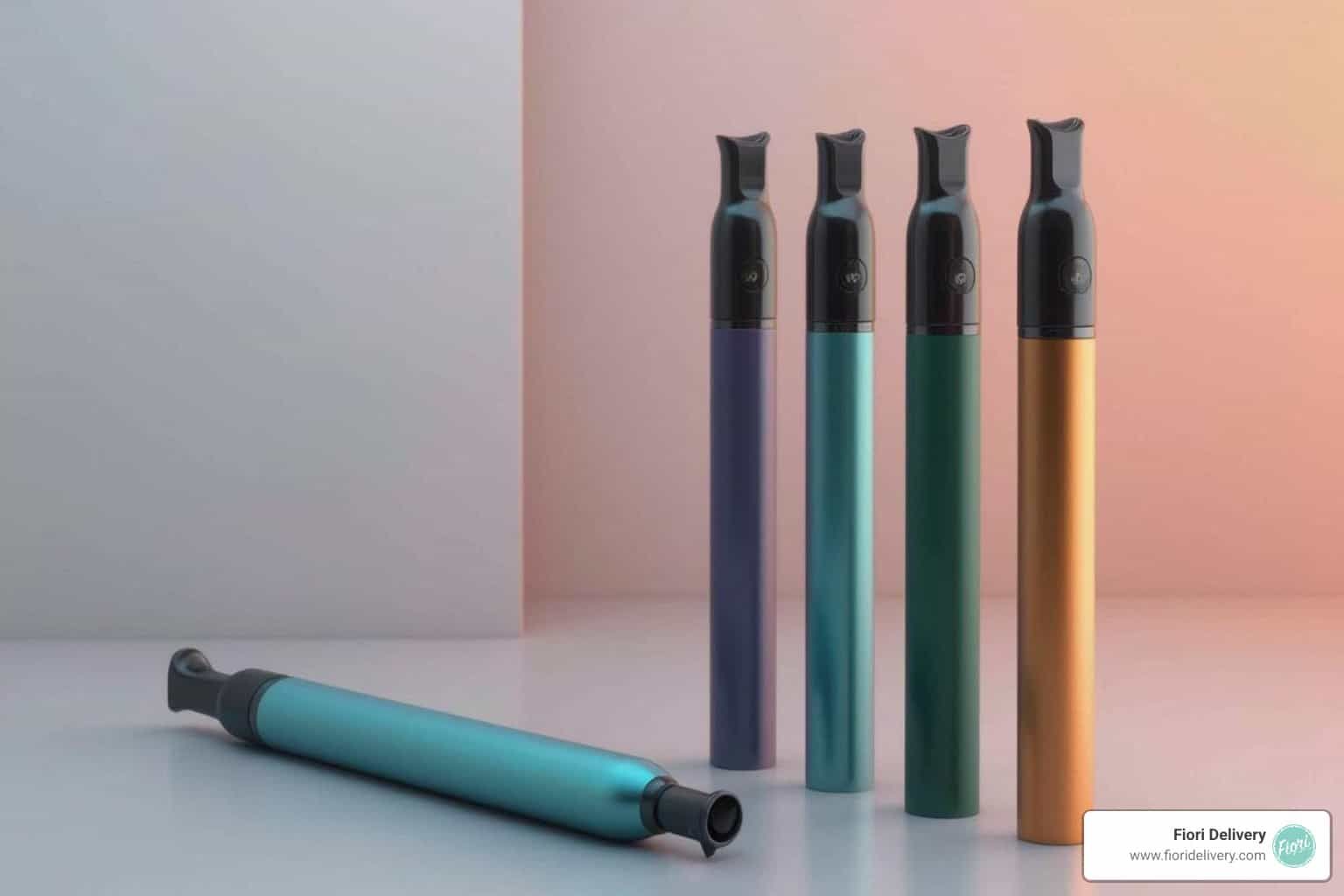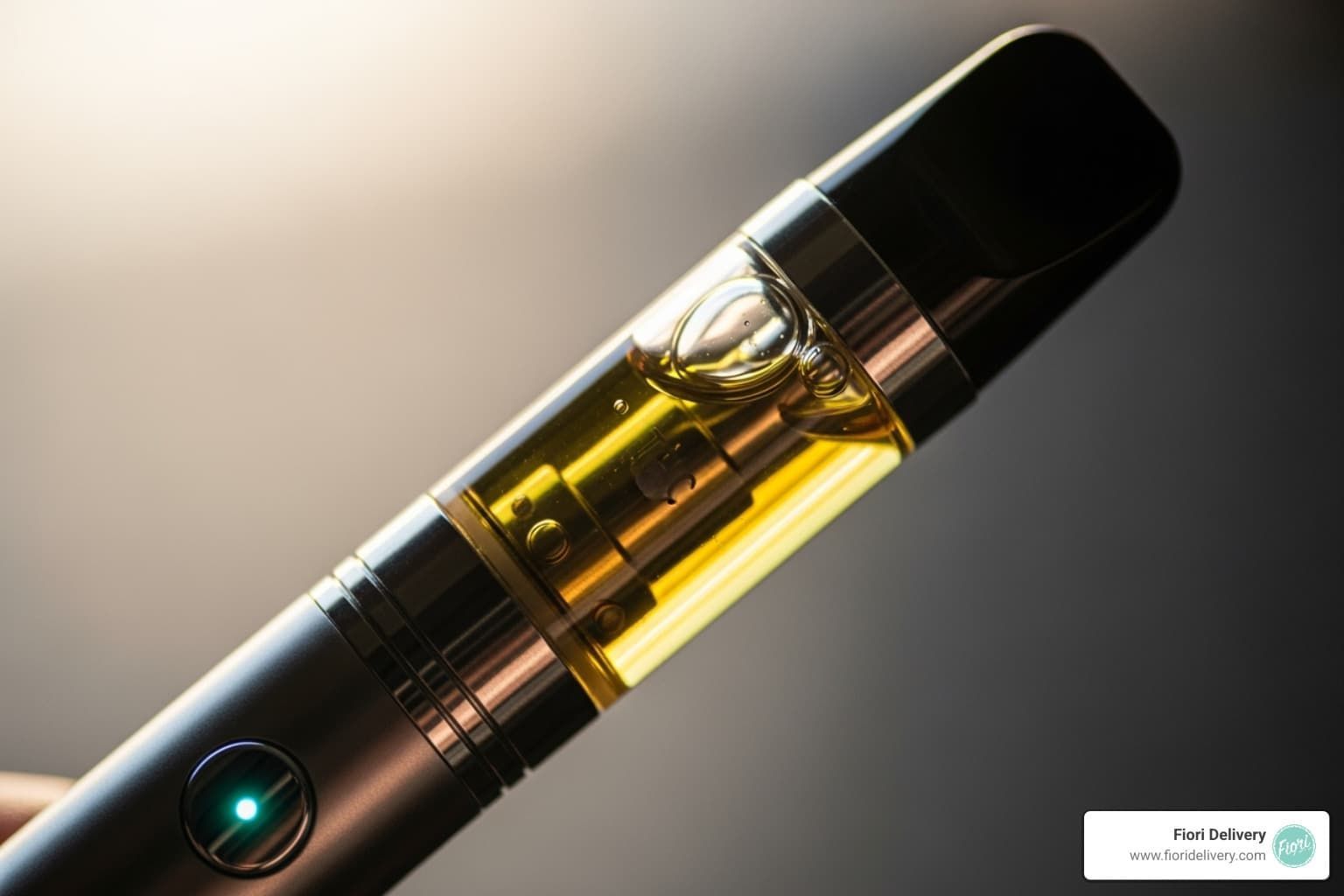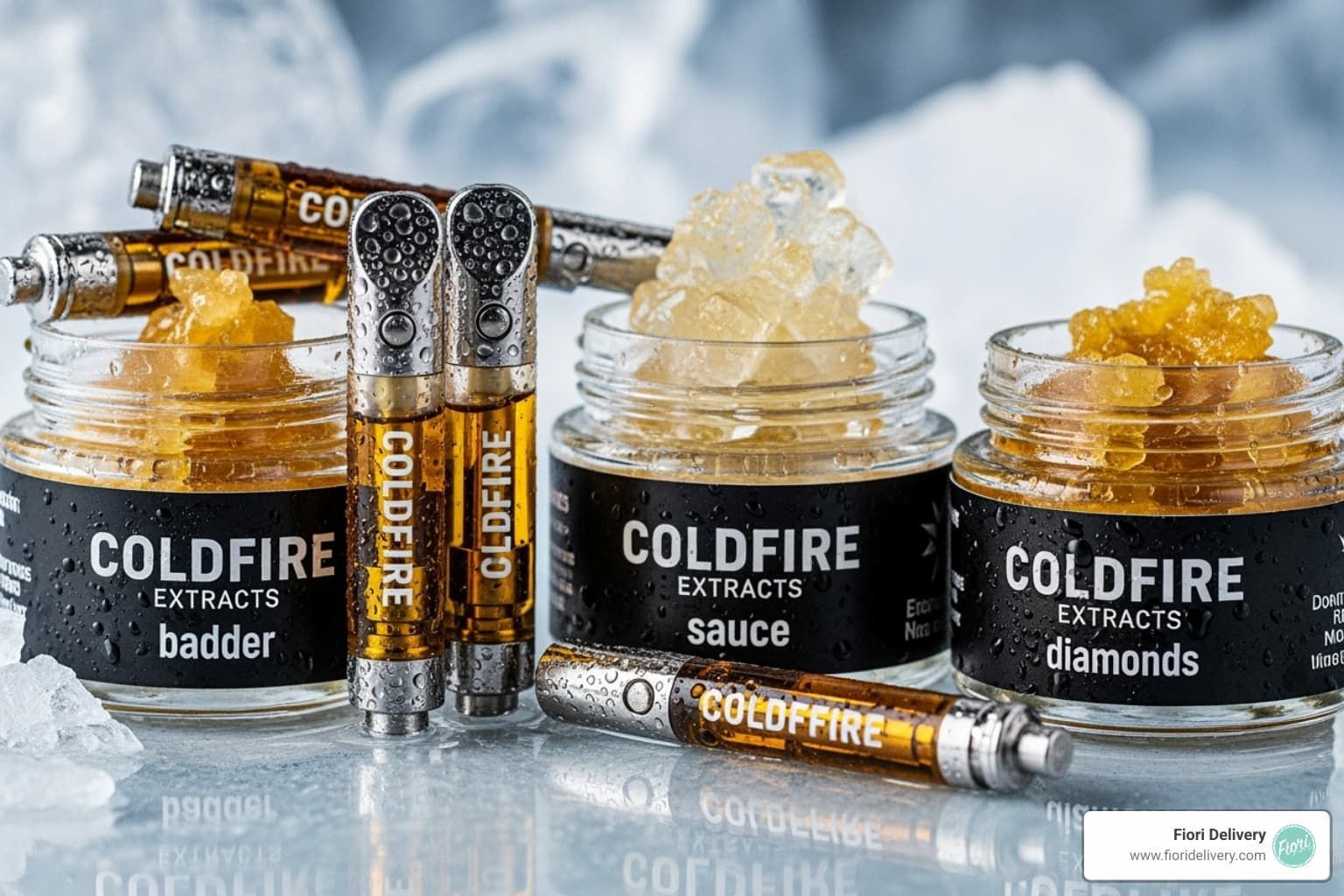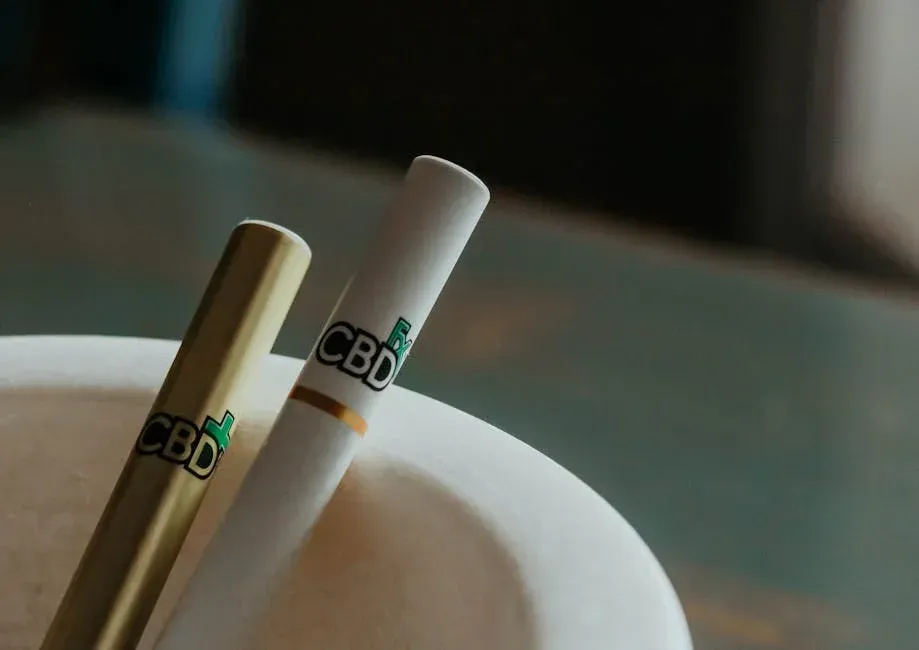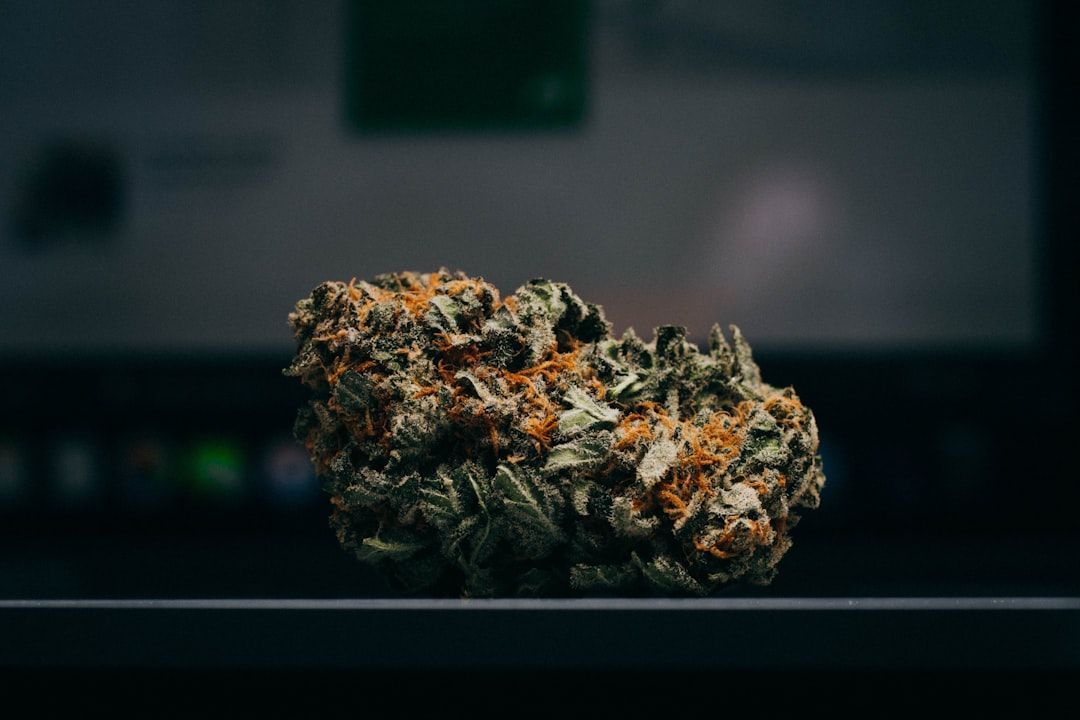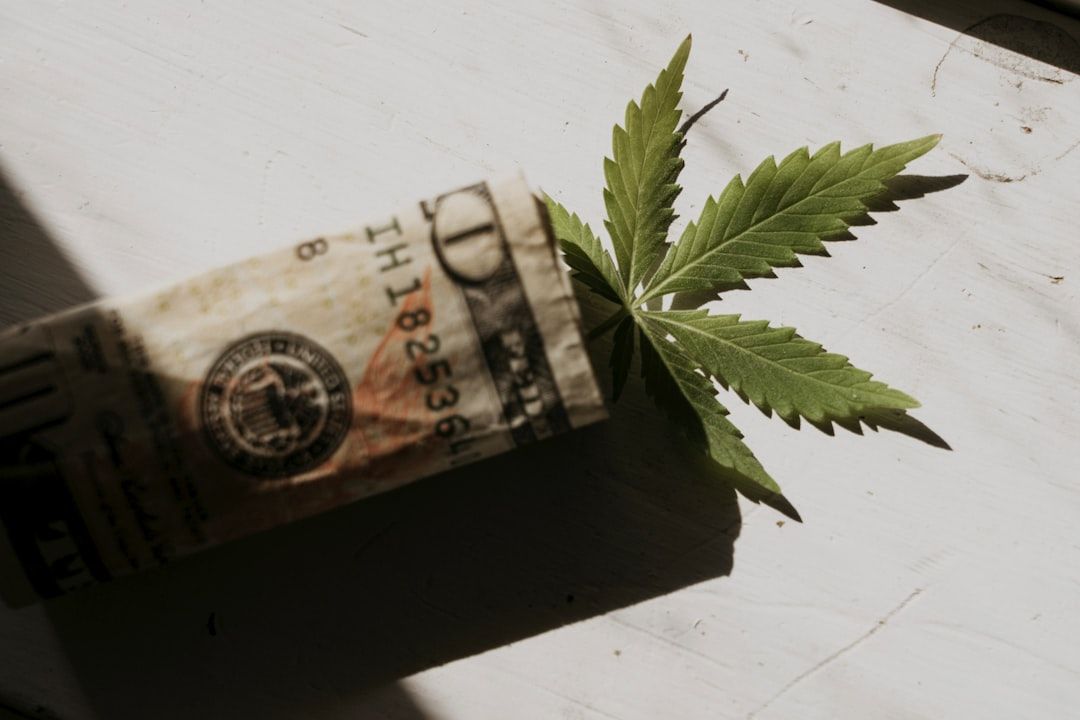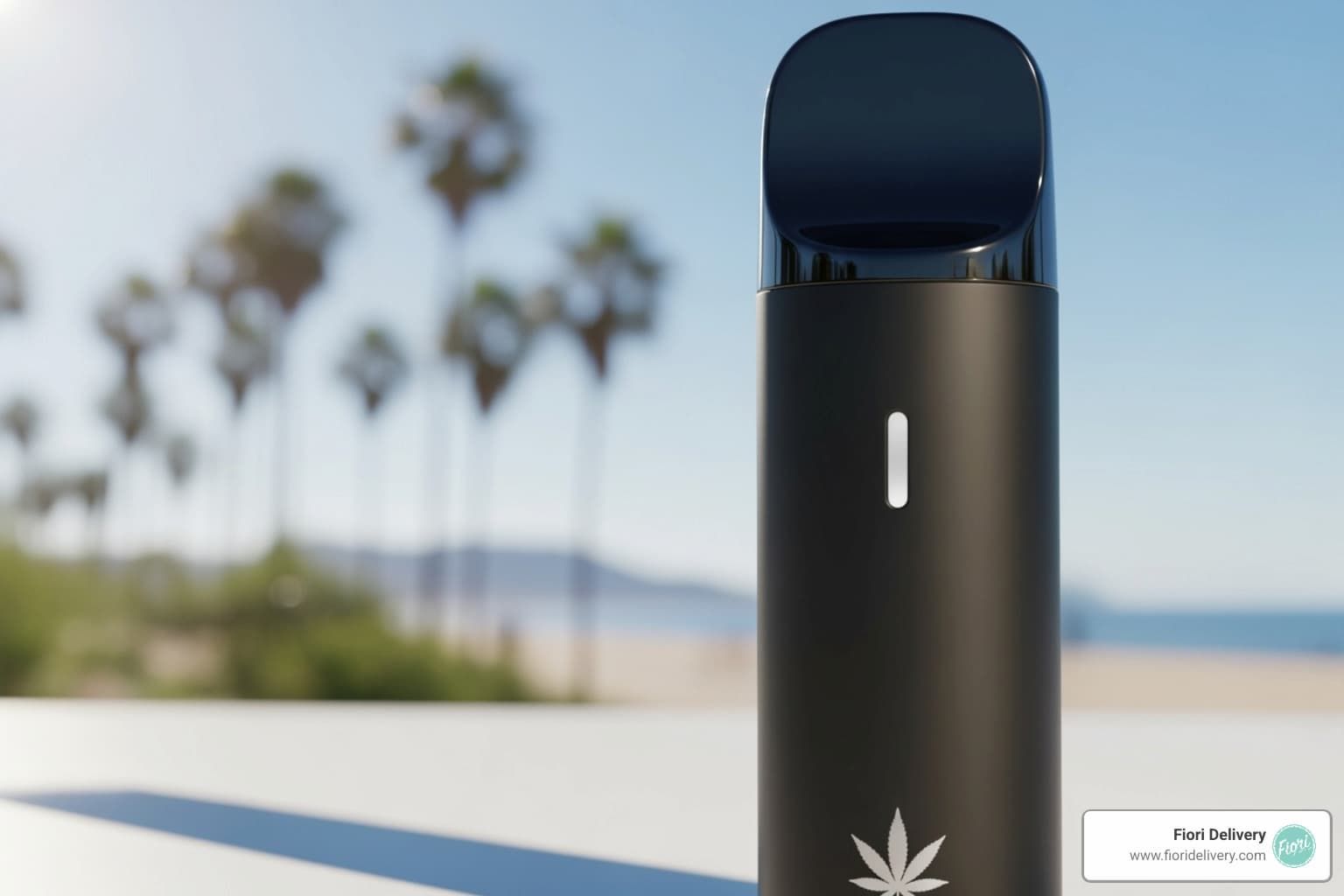Don't forget to return to your survey
and get your discount!
This is a subtitle for your new post
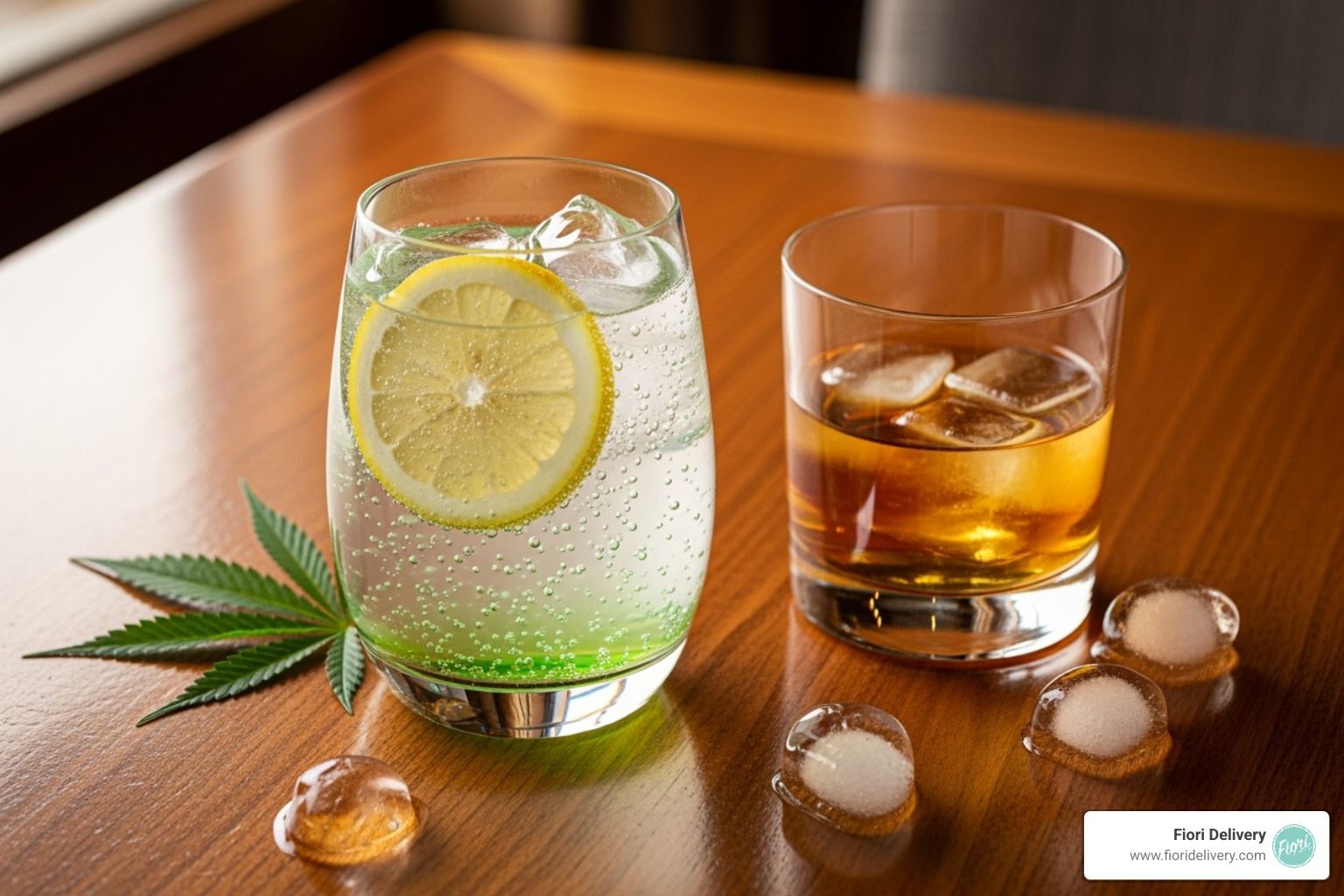
The body content of your post goes here. To edit this text, click on it and delete this default text and start typing your own or paste your own from a different source.
Are cannabis drinks healthier than alcohol is a question more Sacramento professionals are asking as the "sober curious" movement gains momentum. Here's the quick answer:
Current Evidence Suggests:
- Alcohol: Well-documented health risks including cancer, liver disease, and heart problems
- Cannabis Drinks: Fewer calories, no known cancer risk, but limited long-term research
- Bottom Line: Cannabis drinks appear to have a more favorable risk profile, but "healthier" depends on individual factors
The beverage landscape is shifting. With over a third of Americans cutting back on alcohol and daily cannabis use outpacing drinking, the THC beverage market is projected to reach $2 billion by 2030.
This isn't just about getting buzzed differently. It's about making informed choices for your health and lifestyle. Some people report feeling more refreshed after cannabis drinks compared to alcohol's notorious hangovers. Others appreciate the significantly lower calorie count - around 30 calories for a THC drink versus 158 for a glass of wine.
But here's the reality check: we're comparing a substance with decades of health research (alcohol) to one where the long-term effects are still being studied (cannabis drinks). The World Health Organization classifies alcohol as a Group 1 carcinogen, while nearly three million annual deaths globally are attributed to alcohol abuse.
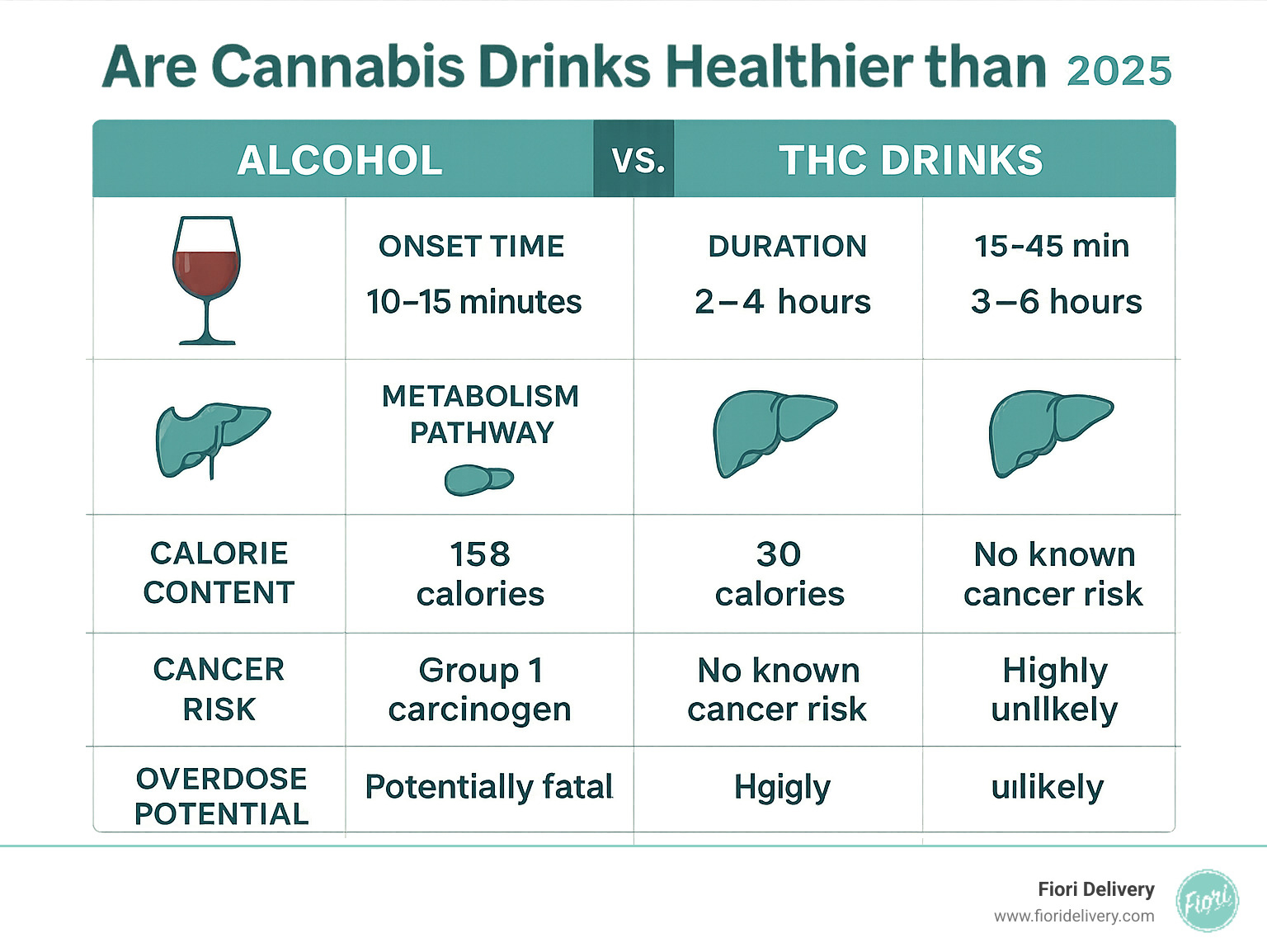
How Your Body Processes the Buzz: Alcohol vs. THC
Understanding are cannabis drinks healthier than alcohol starts with how they work in your body. The way your system processes wine versus a cannabis seltzer is surprisingly different, and these differences explain why many people are switching.
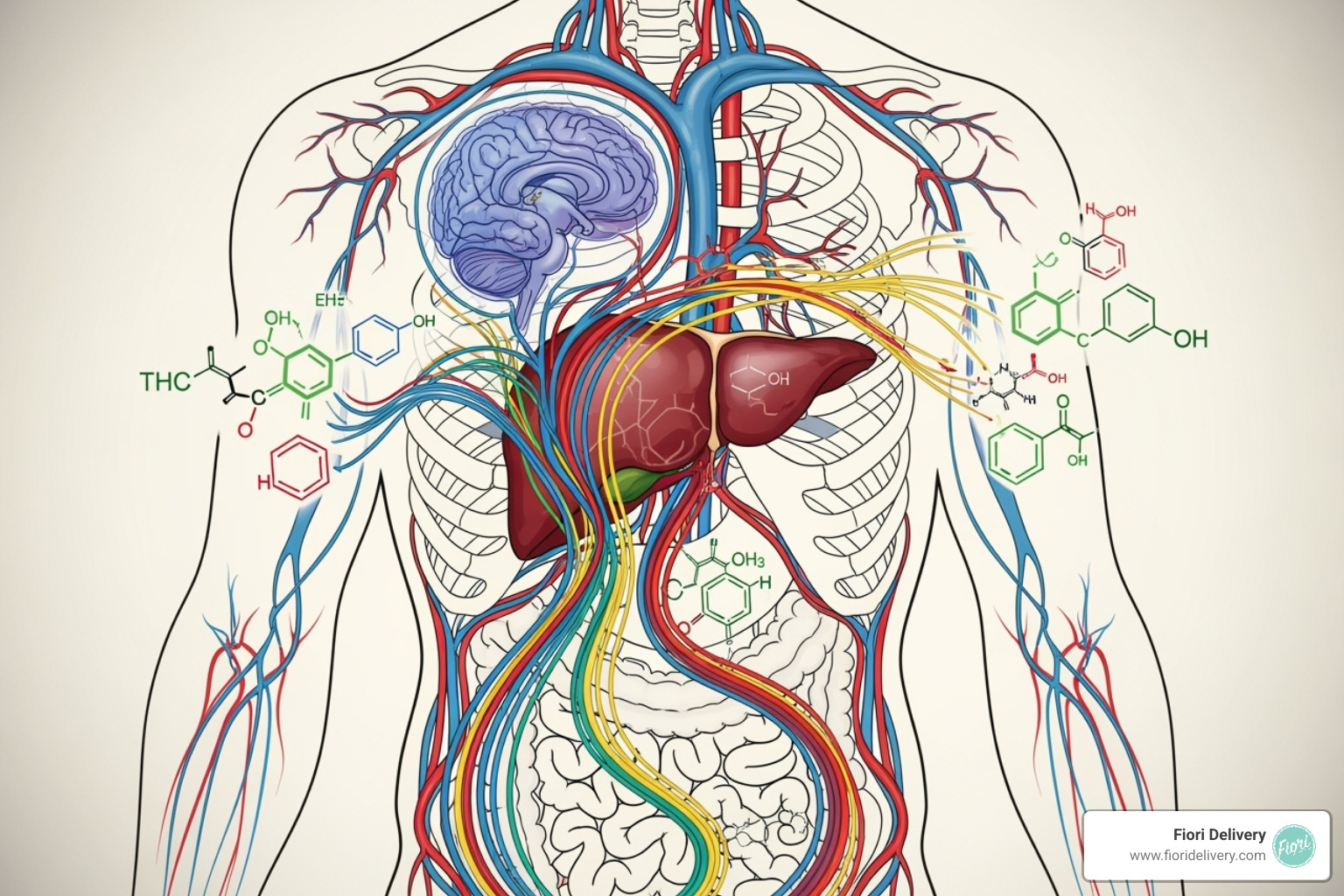
Think of alcohol and THC as taking different routes through your body. Alcohol acts as a central nervous system depressant, slowing your brain's communication network. It boosts GABA (your brain's "chill out" neurotransmitter) while blocking glutamate (the "get excited" one), creating that familiar relaxed feeling and impairing coordination.
THC takes a more sophisticated approach, working with your body's built-in endocannabinoid system. This network helps regulate mood, appetite, memory, and pain. When THC binds to its receptors (mainly CB1 in your brain and CB2 in your immune system), it creates its effects more gently. You can learn more in our guide to The Endocannabinoid System & Cannabis.
Both are processed by your liver, but the similarities end there. Your liver breaks alcohol into acetaldehyde, a toxic compound that damages cells and causes hangovers. THC is broken down into metabolites that can remain in your fat cells for weeks. This difference affects both onset time and how you feel the next morning.
The Quick Hit of Alcohol
Alcohol doesn't mess around when it comes to onset time. Within 10 to 15 minutes of that first sip, ethanol is racing through your bloodstream after being absorbed through your stomach and small intestine. Your blood alcohol concentration (BAC) typically peaks within 30 to 90 minutes, meaning you can gauge your buzz pretty accurately in real-time.
This rapid absorption is both alcohol's strength and its weakness. You know where you stand quickly, but those immediate effects on judgment and coordination can catch you off guard. Plus, alcohol's processing creates dehydration - your liver needs water to break down that acetaldehyde, leaving you parched and primed for a hangover.
The speed also makes it easier to overdo it. By the time you realize you've had too much, it's often too late to pump the brakes.
The Slow Roll of THC Drinks
THC drinks offer a more measured experience, though the timeline has gotten much more interesting lately. Traditional cannabis edibles can take 30 to 90 minutes (or longer) because they need to survive your digestive system and undergo first-pass metabolism in your liver before reaching your bloodstream.
But modern cannabis beverages often use water-soluble THC technology - specifically nanoemulsion. This breaks THC down into tiny particles that can be absorbed through the mucous membranes in your mouth and throat, similar to alcohol absorption. The result? Effects can start within 15 to 20 minutes, though some products still take up to an hour.
Here's the catch: even with faster onset, THC absorption can continue as your liver processes the fat-soluble compounds. Effects might intensify over the first hour or two, which is why the "start low and go slow" advice exists. This delayed intensification has led to accidental overconsumption when people assume the drink "isn't working" and have more. For a deeper look at what to expect, check out the short-term side effects of THC.
The upside? Most people report feeling more clear-headed the next day compared to alcohol's notorious hangover effects.
So, Are Cannabis Drinks Healthier Than Alcohol?
This is the million-dollar question that's sparking conversations from Sacramento coffee shops to wellness forums nationwide. When we ask are cannabis drinks healthier than alcohol, we're comparing a substance with decades of well-documented health research against one that's still relatively new to mainstream consumption.
Here's what we know: alcohol's health risks are exhaustively documented and frankly alarming. It's classified as a Group 1 carcinogen by the World Health Organization, meaning it's in the same risk category as asbestos and tobacco. We're talking about a substance linked to seven types of cancer and contributing to nearly three million deaths globally each year.
Cannabis drinks present a different story. While we don't have the decades of long-term studies that exist for alcohol, the emerging research and current evidence suggest they have a more favorable risk profile. This doesn't automatically make them "healthy" - it's more accurate to think of them as a form of harm reduction for people who want to enjoy a social buzz.
The reality is that we're comparing apples to oranges in terms of available research. But for many health-conscious consumers, the choice often comes down to selecting what appears to be the lesser of two evils based on current evidence.
Let's break down some key health metrics side-by-side:
| Metric | Standard Alcoholic Drink (e.g., 5oz wine) | Standard THC Beverage (e.g., 8oz seltzer) |
|---|---|---|
| Calories | ~158 calories | ~30 calories |
| Sugar | Varies widely, often high | Often low or zero, but check label |
| Known Cancer Risk | Group 1 Carcinogen (WHO) | No known direct link |
| Liver Impact | Significant, can cause disease | Metabolized by liver, but less toxic byproduct |
| Overdose Potential | Potentially fatal (alcohol poisoning) | Highly unlikely to be fatal |
The Calorie Countdown
If you're watching your waistline, the numbers tell a compelling story. That glass of wine you're sipping contains around 158 calories, while most THC drinks clock in at just 30 calories. For perspective, you could enjoy four cannabis seltzers for fewer calories than one glass of wine.
The sugar content difference is equally striking. Many alcoholic beverages, especially cocktails and sweet wines, pack significant amounts of sugar that can spike your blood glucose levels. Most cannabis beverages are formulated with little to no sugar, making them a friendlier choice for anyone managing their blood sugar or following a low-carb lifestyle.
This calorie advantage makes cannabis drinks particularly appealing for weight-conscious consumers who still want to enjoy a social buzz without derailing their health goals. And hey, if those munchies do kick in later, Sacramento has you covered with some amazing spots - check out 12 Insanely Good Munchie Spots in Sacramento.
Long-Term Health Considerations
The long-term health picture for alcohol is genuinely sobering. The World Health Organization doesn't mince words - alcohol is a Group 1 carcinogen , directly linked to cancers of the mouth, throat, breast, liver, and colon. Regular alcohol consumption also significantly increases your risk of liver disease, heart problems, and stroke.
Perhaps most concerning is the WHO's recent conclusion that no level of alcohol consumption is truly safe for our health. Even moderate drinking carries measurable health risks that accumulate over time.
Cannabis drinks present a different risk profile, though we must acknowledge the limitations of current research. The industry is relatively new, so comprehensive decades-long studies are still underway. However, early research suggests that moderate cannabis use shows fewer severe health consequences than regular alcohol consumption.
One unique risk worth mentioning is Cannabinoid Hyperemesis Syndrome (CHS), a rare condition that can develop with chronic, high-potency cannabis use. It causes severe nausea and vomiting, but unlike alcohol-related health issues, it's both rare and reversible when cannabis use stops.
Mental Health & Cognitive Function
Both substances significantly impact your mental state and cognitive function, but in markedly different ways. Alcohol is a central nervous system depressant that can worsen anxiety and depression over time, impair memory and decision-making, and contribute to long-term cognitive decline.
Cannabis drinks offer a more complex picture. Many users report that THC helps them feel calm and relaxed without alcohol's harsh mental fog or next-day depression. Some find it helpful for managing anxiety and chronic pain, making it an appealing alternative for unwinding after a stressful day.
However, THC isn't without risks. For some people, especially with higher doses or certain genetic predispositions, it can trigger anxiety or paranoia. The key is understanding your own tolerance and starting with low doses.
The cognitive effects also differ significantly. While alcohol consistently impairs judgment and coordination, THC's effects on cognitive function vary more between individuals and can be more manageable at lower doses.
Many health experts suggest that when comparing mental health impacts, cannabis drinks often represent the "lesser evil" for most adults. And if you're looking for the perfect entertainment to pair with your chill evening, explore 12 Diverse Shows to Watch When High on Weed.
Risks and Responsible Sipping
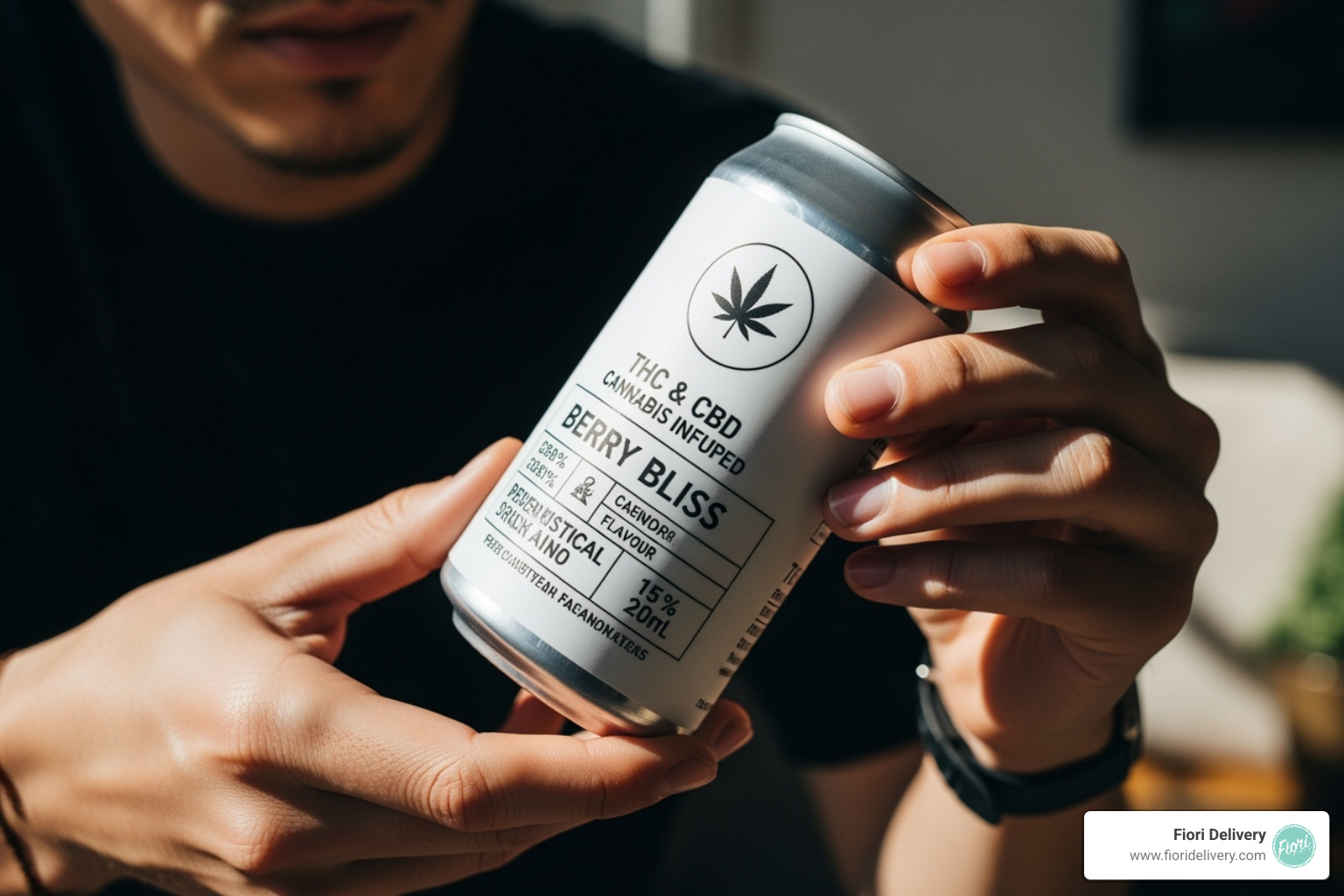
When exploring whether are cannabis drinks healthier than alcohol, understanding how to consume them responsibly is just as important as knowing their health benefits. Think of it like learning to drive - you wouldn't hop behind the wheel without understanding the rules of the road first.
The biggest difference between cannabis drinks and alcohol isn't just how they affect your body, but how you need to approach consuming them. With alcohol, what you see is pretty much what you get - you feel the effects quickly and can gauge your buzz in real time. Cannabis drinks play by different rules entirely.
Reading the label becomes your best friend when it comes to THC beverages. Unlike alcohol where you'll find a consistent ABV percentage, cannabis drinks can range from a gentle 1mg of THC per serving to a more intense 10mg or higher. Understanding dosage isn't just helpful - it's essential for a good experience.
The Danger of "One More": Bingeing and Overconsumption
Here's where things get tricky, and why the delayed effects of THC drinks create the biggest risk for new users. Picture this: you sip a cannabis drink, wait 20 minutes, don't feel much, and think "I need another one." Sound familiar? This is exactly how people end up way more intoxicated than they intended.
The waiting game is everything with THC beverages. While your cocktail hits you within minutes, that cannabis seltzer might take anywhere from 15 minutes to over an hour to show its full effects. Dr. Staci Gruber puts it perfectly: "You can always take more but you can never take less."
Binge drinking alcohol carries serious risks, including potentially fatal alcohol poisoning. Nearly 30 million Americans were diagnosed with alcohol use disorder in 2022 alone. The line between intoxication and dangerous overdose with alcohol is well-documented and frightening.
Cannabis overconsumption feels different but can be equally unpleasant. While you won't face the life-threatening risks of alcohol poisoning, consuming too much THC can trigger intense anxiety, paranoia, nausea, vomiting, rapid heart rate, and crushing fatigue. Some users describe feeling "stuck" or experiencing time distortion that can last for hours.
For chronic, heavy users, there's also Cannabinoid Hyperemesis Syndrome (CHS) to consider - a rare but serious condition causing severe, recurring nausea and vomiting. You can learn more about this condition at More on CHS.
Are cannabis drinks healthier than alcohol for certain people?
While cannabis drinks may offer advantages over alcohol for many people, certain groups need extra caution. Older adults often experience stronger effects due to slower metabolism, which explains the increase in cannabis-related emergency room visits among seniors in states with legal cannabis.
Heart conditions require special attention since THC can temporarily increase heart rate and blood pressure. If you're managing any cardiovascular issues, a conversation with your doctor before trying cannabis drinks is smart.
Medication interactions are another crucial consideration. THC can interfere with certain prescription drugs, making it vital to consult your healthcare provider if you're on any medications. This is especially important when exploring legal options in California - you can find more guidance in Exploring Legal Cannabis Delivery in California: A Guide for Sacramento and Surrounding Regions.
Tips for First-Time Drinkers
If you're ready to try cannabis drinks, the "start low and go slow" approach isn't just a catchy phrase - it's your roadmap to a positive experience. Think of your first time like dipping your toe in the pool before diving in.
Begin with a microdose of 1-2.5mg THC, or at most 2-5mg for your first experience. This gives you a chance to understand how your unique body chemistry responds. Wait at least an hour - or even two - before considering more. Those effects can sneak up on you.
Your environment matters tremendously. Choose a comfortable, familiar space where you feel safe and relaxed, ideally with trusted friends nearby. Stay hydrated with water or other non-alcoholic beverages, and never mix THC drinks with alcohol or other substances.
Most importantly, never drive or operate machinery after consuming THC drinks. The effects can be subtle at first but significantly impact your coordination and reaction time.
These precautions aren't about being overly cautious - they're about ensuring your first experience with cannabis drinks is positive and controlled. For additional guidance on dosing and effects, check out our FAQs.
The Legal Landscape: A Tale of Two Beverages
The legal world surrounding are cannabis drinks healthier than alcohol becomes even more interesting when you consider how differently these beverages are regulated. While you can walk into any grocery store and grab a six-pack of beer, the path to purchasing a THC drink is quite a bit more complicated.
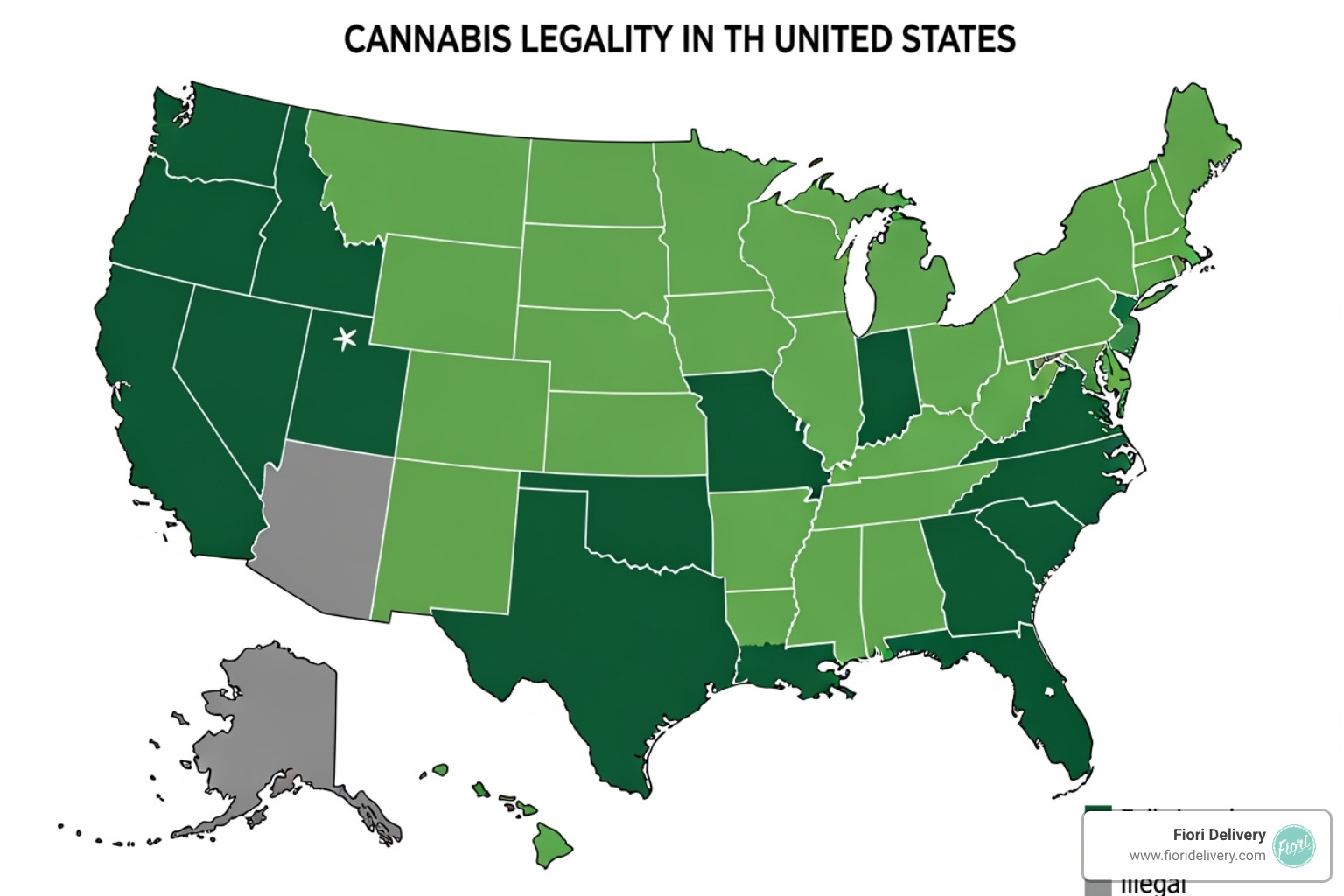
Alcohol has enjoyed decades of established federal regulation. We know exactly what to expect when we see that familiar "21%" on a wine bottle or "5% ABV" on a beer can. The production, distribution, and sales channels are well-established and consistent across the country.
Cannabis beverages? That's where things get interesting. Despite growing acceptance and legalization in many states, cannabis remains federally classified as a Schedule I substance. This creates a fascinating patchwork of state laws that can make your head spin faster than a strong sativa.
The game-changer came with the 2018 Farm Bill. While it didn't wave a magic wand and legalize all cannabis, it did something pretty significant: it legalized hemp and hemp-derived products, as long as they contain no more than 0.3% Delta-9 THC by dry weight. That tiny percentage has created some pretty big opportunities.
Why You Can Find THC Drinks Outside of Dispensaries
Here's where it gets really interesting. That 0.3% rule from the Farm Bill created what many call a "legal loophole" - though it's more like a carefully crafted doorway. Many THC drinks you might spot in grocery stores, gas stations, or even your local bar are made from hemp-derived THC. This could be Delta-8 THC or just a very low concentration of Delta-9 THC that stays under that federal limit.
This means you might find these beverages in states where recreational marijuana is otherwise illegal, or in places that aren't licensed dispensaries. It's pretty wild when you think about it - you could be in a state where cannabis flower is completely prohibited, but you can legally sip a hemp-derived THC drink.
But here's the catch: these products often operate with less oversight than the regulated cannabis products you'd find in licensed dispensaries. While this makes them more accessible, it can lead to inconsistencies in labeling, potency, and quality control. Unlike that reliable ABV percentage on your favorite beer, the THC content on some of these labels might not be as accurate as you'd hope.
California's Approach to Cannabis Beverages
California takes a much more thorough approach to cannabis beverages. Here in the Golden State, where recreational cannabis is fully legal, the Department of Cannabis Control (DCC) has created a robust regulatory framework that would make even the most cautious consumer feel confident.
When you choose a cannabis drink from a licensed dispensary, you're getting a product that has undergone rigorous lab testing for potency, contaminants, and pesticides. The labeling standards are crystal clear, so you know exactly what you're putting in your body. No guessing games, no surprises.
Products containing more than that 0.3% THC threshold are only available through licensed channels like dispensaries and delivery services. This provides a level of consumer protection that simply doesn't exist in unregulated markets. When you order from a licensed provider in California, you're choosing quality, safety, and transparency over convenience.
This commitment to safety and quality is why many California consumers feel more confident exploring whether are cannabis drinks healthier than alcohol - they know they're getting reliable, tested products. And for those who value their privacy, licensed services often provide Discreet Cannabis Delivery 101: How to Keep Your Green Scene Unseen.
Frequently Asked Questions about Cannabis Drinks
As more people explore cannabis drinks as an alternative to alcohol, we get plenty of questions from curious Sacramento residents. Whether you're completely new to THC beverages or just wondering are cannabis drinks healthier than alcohol, here are the answers to the most common questions we hear.
How long do THC drinks take to kick in?
This is probably the biggest question on everyone's mind, and honestly, it's one of the most important things to understand before your first sip. THC drinks can be a bit unpredictable when it comes to timing.
Some people feel effects in as little as 15 minutes, especially with products that use nanoemulsion technology. This fancy term basically means the THC has been broken down into tiny particles that your body can absorb more quickly. Other drinks might take 45 minutes to an hour to fully kick in, depending on what you've eaten, your metabolism, and the specific product.
Here's the golden rule: always wait at least an hour before considering another serving. I know it's tempting to think "this isn't working" after 20 minutes, but trust me, you don't want to be that person who doubles down only to get hit with a wave of effects an hour later.
Will I get a hangover from a THC drink?
The short answer? Not like you would with alcohol, but there can be some next-day effects if you overdo it. Traditional alcohol hangovers come with that familiar cocktail of dehydration, headaches, nausea, and general misery. THC drinks don't dehydrate you the same way, so you're unlikely to wake up with a pounding headache.
However, if you consume too much THC, you might experience what some people call a "weed hangover." This usually shows up as grogginess, fatigue, or a bit of brain fog the next morning. The good news? Most people report feeling much more refreshed after THC drinks compared to alcohol's harsh aftermath.
The key, as always, is moderation. Stick to recommended doses, and you'll likely wake up feeling pretty normal.
Can I mix cannabis drinks with alcohol?
Absolutely not. This is one of those situations where the answer is crystal clear. Mixing cannabis drinks with alcohol - sometimes called "crossfading" - is strongly discouraged by pretty much every expert out there.
When you combine these substances, they can amplify each other's effects in unpredictable ways. What might feel like a mild buzz from each substance alone can suddenly become intense intoxication when combined. People report experiencing dizziness, nausea, severe impairment, and really poor judgment when mixing the two.
If you're curious about cannabis drinks because you want an alternative to alcohol, stick with one or the other for the evening. Your body (and your friends) will thank you.
The Final Sip: Making an Informed Choice
When it comes to are cannabis drinks healthier than alcohol, the answer isn't black and white – but the evidence points in an interesting direction. We've taken you through the science, the risks, and the real-world differences between these two buzzy beverage categories.
Here's what we know for certain: alcohol carries well-documented health risks that are frankly hard to ignore. It's a Group 1 carcinogen, it damages your liver, and it contributes to millions of deaths worldwide each year. Cannabis drinks, while still being studied for long-term effects, generally present a less toxic profile with significantly fewer calories and no direct cancer link.
The choice ultimately comes down to informed decisions and understanding your own body. Some people find that cannabis drinks offer the social buzz they're looking for without the next-day regret that often comes with alcohol. Others appreciate the lower calorie count and the absence of that dehydrated, headachy hangover feeling.
But let's be real – we're not claiming cannabis drinks are a health food. They're still an intoxicating substance that requires respect and moderation. The key is harm reduction rather than looking for a "healthy" way to get buzzed. It's about choosing what feels right for your body, your lifestyle, and your health goals.
Personal responsibility plays a huge role here. Whether you're sipping wine or trying a THC seltzer, understanding how these substances affect you personally is crucial. Your metabolism, your tolerance, your medical history, and even your current stress levels all factor into how any substance will impact you.
For many Sacramento area residents we serve, cannabis drinks have become a compelling alternative for unwinding after work, enjoying social gatherings, or simply relaxing on the weekend. The faster onset compared to traditional edibles, combined with the lower calorie count and absence of harsh hangovers, makes them an attractive option.
If you're curious about exploring cannabis beverages, we invite you to explore our selection of cannabis-infused beverages. Every product in our collection has been carefully curated and meets California's strict lab testing requirements for potency and purity.
As a premier cannabis delivery service, Fiori Delivery is proud to serve the greater Sacramento area, including Elk Grove, Roseville, and Citrus Heights, with a menu of compliant and lab-tested products. We're here to help you make informed choices about cannabis beverages, whether you're a curious first-timer or someone looking to make the switch from alcohol.
The beverage landscape is evolving, and having the right information helps you steer it confidently. Whatever you choose, drink responsibly, start low, go slow, and listen to your body.
Don't forget to return to your survey
and get your discount!

